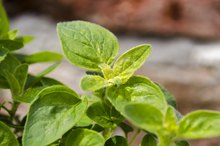The Side Effects of Echinacea Tea
Echinacea tea is a somewhat controversial treatment for colds and other immune system issues, according to the University of Maryland Medical Center. Though the medical center notes that some research suggests echinacea tea may help colds pass more quickly and decrease the severity of their symptoms, preparations of echinacea can vary so significantly that it's difficult to confirm these benefits. As with any herbal remedy, consult your health-care provider if you're considering making echinacea tea part of your health-care regimen.
Allergic Reactions
It's rare, but some people may have allergic reactions after drinking echinacea tea, according to the University of Maryland Medical Center. People who have asthma or allergies, especially people who are allergic to plants in the daisy family, may be especially prone to allergic reactions to echinacea tea. Allergic reactions to echinacea range from fairly mild skin rashes to life-threatening conditions like anaphylaxis, so if you suspect you're having an allergic reaction to using echinacea, seek medical attention immediately.
Immune System Effects
Can Oregano Cause Heart Palpitations?
Learn More
Echinacea tea may stimulate the immune system and interfere with the effects of medications used to suppress overactive immune systems, so people who have progressive systemic or autoimmune disorders -- including tuberculosis, connective tissue disorders and lupus -- shouldn't drink echinacea tea, according to the Herb Research Foundation. Long-term echinacea use may lower your white blood cell count, according to Medline Plus, an online health information resource maintained by the U.S. National Library of Medicine and the National Institutes of Health.
Other Side Effects
As long as you're not exceeding the recommended dosage of echinacea -- 1 to 2 grams of dried echinacea root made into a tea per day, according to the University of Maryland Medical Center -- your risk for side effects is low. Mild side effects can include headaches, stomach discomfort, drowsiness, muscle aches and dizziness, according to Medline Plus. Rarely, echinacea can cause heart, liver or kidney problems.
Possible Drug Interactions
What Are the Health Benefits of Gohyah Tea?
Learn More
You may experience serious reactions if you take echinacea while taking other medications, according to Medline Plus. Taking echinacea with caffeine will slow down the rate at which caffeine is broken down, which may cause you to experience jitteriness, rapid heart rate and headache. Taking echinacea may also increase the side effects or decrease the effectiveness of certain medications including anti-psychotic drugs, immune-boosting drugs, muscle relaxants, immunosuppresants and blood pressure medications.
Related Articles
References
- University of Maryland Medical Center: Echinacea
- National Center for Complementary and Alternative Medicine: Echinacea
- Memorial Sloan Kettering Integrative Medicine About Herbs, Botanicals & Other Products. Echinacea. https://www.mskcc.org/cancer-care/integrative-medicine/herbs/echinacea
- Natural Medicines Database: Therapeutic Research Center. Echinacea. https://naturalmedicines.therapeuticresearch.com/databases/food,-herbs-supplements/professional.aspx?productid=981
- UCLA Center for East-West Medicine. The Echinacea Controversy: Herbal Remedy for Colds? https://exploreim.ucla.edu/wellness/the-echinacea-controversy-herbal-remedy-for-colds/
- Restani P, Di Lorenzo C, Garcia-Alvarez A, et al. Adverse Effects of Plant Food Supplements Self-Reported by Consumers in the PlantLIBRA Survey Involving Six European Countries. PLoS One. 2016;11(2):e0150089. doi:10.1371/journal.pone.0150089
- Senica M, Mlinsek G, Veberic R, Mikulic-petkovsek M. Which Plant Part of Purple Coneflower (Echinacea purpurea (L.) Moench) Should be Used for Tea and Which for Tincture? J Med Food. 2019;22(1):102-108. doi:10.1089/jmf.2018.0026
- Wanwimolruk S, Prachayasittikul V. Cytochrome P450 enzyme mediated herbal drug interactions (Part 1). EXCLI J. 2014;13:347-391.
- Karsch-Völk M, Barrett B, Kiefer D, Bauer R, Ardjomand-Woelkart K, Linde K. Echinacea for preventing and treating the common cold. Cochrane Database Syst Rev. 2014;2(2):CD000530. doi:10.1002/14651858.CD000530.pub3
- National Center for Complementary and Integrative Health. Echinacea. Updated September 2016.
- Brown PN, Chan M, Paley L, Betz JM. Determination of major phenolic compounds in Echinacea spp. raw materials and finished products by high-performance liquid chromatography with ultraviolet detection: single-laboratory validation matrix extension. J AOAC Int. 2011;94(5):1400-1410.
- Hudson JB. Applications of the phytomedicine Echinacea purpurea (Purple Coneflower) in infectious diseases. J Biomed Biotechnol. 2012;2012:769896. doi:10.1155/2012/769896
- Memorial Sloan Kettering Integrative Medicine About Herbs, Botanicals & Other Products. Echinacea.
- Natural Medicines Database: Therapeutic Research Center. Echinacea.
- UCLA Center for East-West Medicine. The Echinacea Controversy: Herbal Remedy for Colds?
Writer Bio
Holly Roberts is an award-winning health and fitness writer whose work has appeared in health, lifestyle and fitness magazines. Roberts has also worked as an editor for health association publications and medical journals. She has been a professional writer for more than 10 years and holds a B.A. in English and an M.A. in literature.









